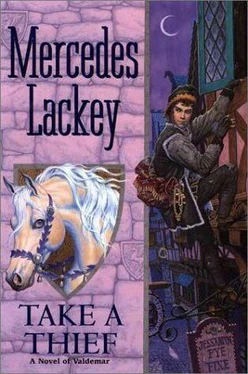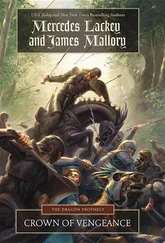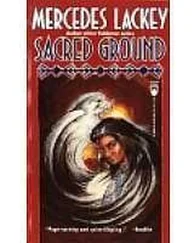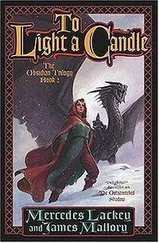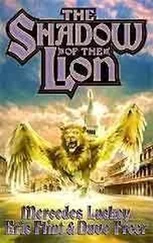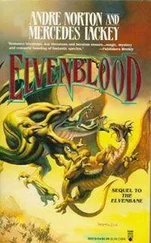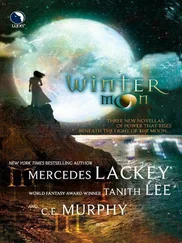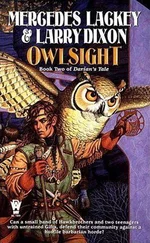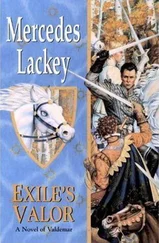“Skif, Skif, Skif,” Bazie sighed, looking pained. “Oh, lad — tell me 'ow 'tis summun as smart as ye are got t' be so iggnerent.”
“I didn' wan' miss me breakfust,” Skif said humbly, head hanging in shame. “T' Queen sez ever' young'un whut's still takin' lessons gets breakfust. Niver did like sums, so's easy 'nuff not t' learn 'em.”
Silence from Bazie for a moment, then, much to Skif's relief, a chuckle. “Well, 'tis 'onest 'nuff answer, an' nay so stupid a one,” Bazie replied. “Well, young'un, ye're 'bout t' learn them sums, an' learn 'em t'hard way.”
“The hard way,” Skif soon learned, was to get them by rote.
Bazie drilled him. And drilled him. And then, when he grew hoarse and Skif thought he might be done for the day, at least, Bazie paused only long enough for a mug of hot tea to lubricate his throat and began the drill all over again. Only when Skif was mentally exhausted did Bazie give over, and at that point, Skif was only too pleased to haul water instead of reckoning his four-times table.
Shortly after that, Lyle returned with the makings of dinner and helped Skif put together a satisfying meal of bacon, day-old bread, and apples. As the bacon fried and the bread toasted, the other two appeared with a new lot of loot. Raf brought in more sleeves — this lot was a bit worn and threadbare about the hems, but Bazie examined them and gave it as his opinion that he could make a sort of trim out of some of them that would serve to cover the worn parts, making them look new.
Deek brought back only a couple of scarves and kerchiefs, but a great deal of news for Skif.
“Yer Nuncle Londer's 'angin' 'is boy Kalchan out t' twist on 'is own, which I guess we all figgered,” he announced, as Skif and Lyle tucked thick slabs of bacon between two pieces of toasted bread and added mustard before handing them around. “It don' look like ol' Kalchan's gonna be much like hisself, though. Healers say 'is skull wuz fair cracked, an' they figger 'is brains is addled. They reckon 'e'll be good fer nowt but stone pickin' fer 'is life, an' I reckon they'll put 'im out wi' sum farmer or 'tother.”
Skif snorted. “’E wuz no prize anyroad,” he countered. “But if 'e's addled, reckon 'e cain't conterdick Nuncle Londer.” But it was an odd thought. Kalchan, who never turned his hand to any physical labor if he could help it, eking out the rest of his life in the hard and tedious work of picking stones out of farm fields to make them easier to plow. Such work was endless, or so he'd heard; it seemed that no matter how many stones one dug out of a given field, there were always more working themselves to the surface.
Serves 'im right. It might not be a punishment that accurately fit the crime, but it suited Skif. His only regret was that, once again, Uncle Londer was going to escape the consequences.
But it don' bother me 'nuff that I wanta go talk t' Guard about it.
The new owner of the Hollybush had already moved his own people in. The cook was gone, no one knew where, but possibly still in Guard custody. The Hollybush was back in business, but with slightly better food and drink and slightly higher prices, or so Deek's sources had told him. The new people were a hard-faced woman who acted as cook, and her henpecked husband who managed the drink, and their three grown children. Rumor had it that the two daughters, who acted as serving wenches, could be had for a modest price, plying their trade in the curtained-off alcove that had served Maisie as a sleeping cubby. Given that there were probably no wages being paid to the children, plus the added income brought in by the daughters, the place would probably remain profitable despite higher prices that would drive some customers elsewhere.
What was important to Skif was that there was no point in going back after his meager belongings; by now anyone who was grasping enough to serve as madam to her own daughters would have claimed everything usable for herself.
Well, they were welcome to it.
“ ‘F I nivir 'ear uv m'nuncle agin, 'twill be too soon,” Skif proclaimed loudly. “An’ whoivir's got the 'Ollybush kin 'ave it, much good may't do 'em. 'Eard awt uv Maisie, though?”
“Yer cuz Beel, wut's wi' th' Temple, took 'er, they sez,” Deek told him. “Cleaned 'er up, 'ad 'Ealers wi' 'er. They sez she's t'work i' Temple, i' kitchen, mebbe scrubbin' an' cleanin'.”
“She nivir did me 'arm,” Skif observed slowly. “Nawt thet she 'ad more'n a scatterin' uv wits t' begin wi'. Ol' Beel — 'e dun me a good turn, reckon 'e's dun wut 'e cud fer Maisie.”
“Like I sed,” Bazie put in, when comment seemed called for, “Niver know wut a mon'll do, when 'e gets in Temple. I reckon ol' Londer ain' gonna be too pleased wi' yon Beel from 'ere on.”
Skif smiled slowly. “Reckon yer right, Bazie.”
* * * * * * * * * *
The next several days passed much as the first had. Skif had originally been more than a little cautious around Bazie, especially when he found himself alone with the man. Crippled or not, Skif was in Bazie's control, and there was always the possibility that Bazie's interests in his boys went beyond the obvious. But Bazie never once showed anything but an honest friendliness that was both nurturing and practical. If Skif had ever known a real father, he would have recognized the odd feelings he was having now as being those of a son for a caring father — and he would have seen that Bazie's actions were like those of a caring father for his sons. He only knew that he liked Bazie enormously, and he trusted the man more and more with every moment. For his part, Bazie pretty much took care of his own needs, requiring only to be carried to and from the water closet. Skif was impressed by how calmly self-sufficient he was. He had guessed by now that Bazie was at least forty or fifty years old, and yet he never seemed old.
There was one thing, however, that Bazie always insisted on which seemed rather odd to Skif. One of his daily chores was to set a handful of wheat to soaking, and rinse the sprouting grains from previous days. When the sprouts got to a certain length, Bazie would eat them. He didn't seem to like them very much, but he doggedly munched them down.
“ ‘F ye don' like tha’ muck, why'd ye eat it ev' day?” Skif finally asked.
“ 'Cuz I like m' teeth,” Bazie said shortly. “ ‘F I don' eat tha' muck, seein' as I niver sees th' sun, 'twon't be long 'fore I lose m'teeth an' gets sick. Tha's wut Healer tol' me fust time m' teeth started bleedin' an' I got sick. Mucky grass's cheapest stuff 'round, so's tha's wut I eat in winter. Summer, 'course, they's good stuff i' market.”
As the days passed, Skif finally grew bold enough to voice some of his curiosity about this most curious of situations. Besides, getting Bazie to talk made a welcome break from being drilled in sums as he scrubbed or stirred the laundry kettle.
At first, his questions were about commonplaces, but eventually he got up the courage to start asking more personal things. And, finally, he asked the most important of all.
“Bazie — wut 'appened t' yer legs?” he ventured, and waited, apprehensively, for a hurt or angry reply.
But Bazie voiced neither. Instead, he gazed at Skif for a moment. “ 'Tis a long story, but 'tothers 'ave 'eard it, an' likely they'll figger it oughta be me 'as tells ye.” He paused. “Ye ever 'ear uv th' Tedrel Wars?”
Skif shook his head.
“Thought not.” Bazie sighed gustily. “Wuz back yon twenny yearn, easy, mebbe thutty. Well, I wuz in't. Tedrel mercs — tha's mercenaries, they's people wut fights wars fer money, fer them as don' figger on doin' the fightin' thesselves — they wuz paid t'come up from south, t' fight 'gainst Valdemar fer Karse. On'y 'twasn't t' be known thet they wuz doin' it fer Karse; they wuz a lot uv promises made 'bout Tedrels gettin' t' hev t'half uv Valdemar when they won.” He shook his head. “Daft. 'Course, I didn' know thet. I wuz young 'n dumb, didn' think about nawt but loot an' wimmin.”
Читать дальше
